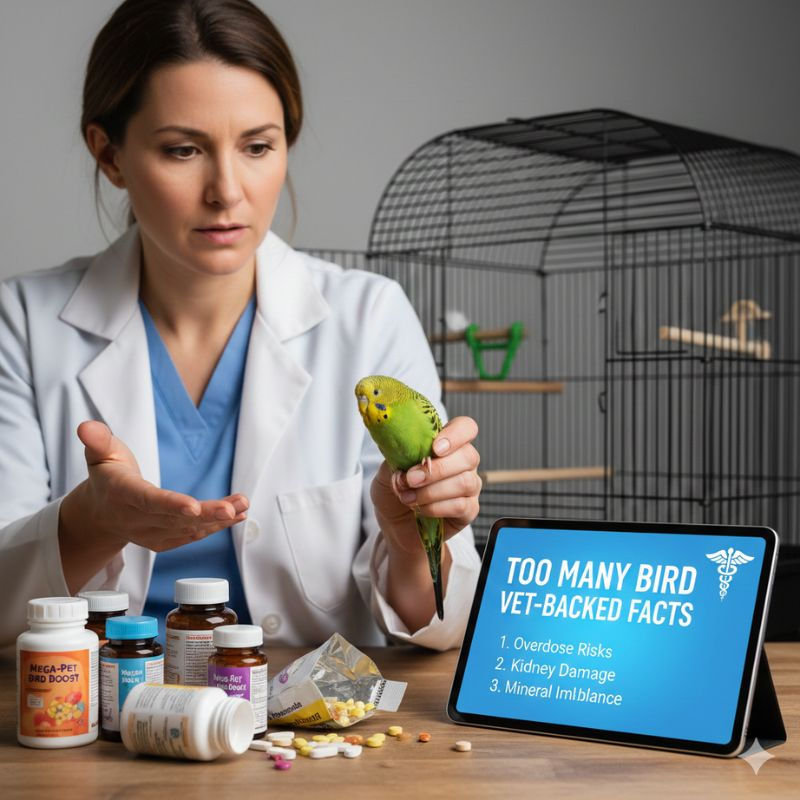What Do Birds Eat? 10 Surprising Foods That Are Actually Safe
- petperchlove
- Apr 11, 2025
- 4 min read
Birds have incredibly diverse diets, depending on their species, environment, and whether they live in the wild or are kept as pets. As bird lovers, whether we’re caring for our feathered companions at home or feeding wild visitors in our backyard, it’s crucial to know what do birds eat to keep them healthy and happy.
While commercial bird food is the foundation of most birds' diets, did you know that there are several human foods and natural items that are surprisingly safe for birds? In this blog, we’ll dive deep into 10 unexpected foods that you can safely feed to birds — along with some guidance on when and how to serve them.
Let’s explore these fascinating feeding facts!
1. Cooked Sweet Potatoes
Yes, birds can eat cooked sweet potatoes! Rich in vitamins A and C, they support feather health and immune function. Just be sure they're plain and not seasoned with sugar or salt. This can be a great supplement to regular pet bird food or even wild bird food offered outdoors.
2. Cooked Brown Rice or Quinoa
Whole grains like brown rice and quinoa are excellent sources of fiber and protein. Make sure they're plain, cooled, and free from oils or spices. Birds enjoy them both in bird feeders and in bowls inside their cages.
3. Apples (Without Seeds)
Apples are a sweet treat packed with antioxidants. However, the seeds contain cyanide and must be removed. Add thin apple slices as a complement to your usual birds food routine.
4. Fresh Herbs Like Basil and Parsley
Many fresh herbs are perfectly safe for birds and provide enrichment and mild health benefits. Birds love nibbling on basil, dill, and cilantro. It’s an easy way to add variety to their diet without replacing their staple bird food.
5. Broccoli Florets
Raw or lightly steamed, broccoli is a bird-safe veggie rich in nutrients. Chop it into small pieces and mix it into your bird’s daily meals or scatter them near bird feeders for wild birds to enjoy.
6. Scrambled Eggs (No Salt or Butter)
It might seem ironic, but eggs are a good protein source for birds. Just make sure they’re plain and not cooked in oil or butter. It’s a protein boost for your pet bird food regimen — especially for breeding birds or those recovering from illness.
7. Bananas
Soft and easy to digest, bananas are loved by many bird species. They’re high in potassium and can be mashed or sliced. Wild birds, especially in the colder months, appreciate high-energy fruits like this near bird feeders.
8. Unsalted Sunflower Seeds
Often found in wild bird food mixes, sunflower seeds are a go-to snack. Ensure they’re unsalted and ideally shelled, especially for smaller pet birds. They're high in healthy fats and perfect as an occasional treat.
9. Peanut Butter (Natural Only)
A small amount of natural, unsweetened peanut butter on a pinecone or piece of toast can be an irresistible treat for birds. It’s commonly used to attract wild birds in DIY bird feeders.
10. Berries (Blueberries, Strawberries, Raspberries)
Rich in antioxidants, fresh berries are a delicious snack for birds. They can be offered to both wild and pet birds, chopped for easy digestion. Include them alongside your regular pet bird food for extra nutrition and enjoyment.
Expert Tip: Balance is Key
While these foods are safe and nutritious, they should always be offered in moderation. A bird’s core diet should still consist of high-quality commercial bird food tailored to their species, with occasional additions of fruits, vegetables, and safe treats.
For wild birds, using seed mixes or suet blends designed specifically for outdoor use is ideal. Placing them in proper bird feeders ensures safe and hygienic feeding.
Foods to Avoid at All Costs
While some human foods are bird-safe, others can be toxic. Never feed birds:
Avocado
Chocolate
Caffeine
Alcohol
Onion or garlic
Salty or sugary snacks
Final Thoughts
Understanding what do birds eat is essential to caring for them properly. Whether you’re setting up bird feeders in your backyard or creating a nutritious menu for your pet, knowing which foods are safe — and which are not — can help your feathered friends thrive.
By occasionally offering these surprising yet safe foods along with your usual birds food or pet bird food, you can enhance their diet, support their health, and enjoy more interactive feeding experiences.
FAQs
Q1. Can I feed bread to birds?
While small amounts of whole grain bread are not toxic, bread lacks essential nutrients and should not be a regular part of a bird’s diet. It’s better to stick to fruits, grains, and high-quality bird food.
Q2. What do wild birds eat in winter?
In winter, wild birds rely heavily on high-energy wild bird food like suet, seeds, and nuts. Foods like peanut butter and sunflower seeds can also help them maintain energy levels in cold weather.
Q3. How often should I clean bird feeders?
To avoid mold and bacteria, clean bird feeders at least once every two weeks — more frequently during rainy or humid seasons.
Q4. Are there differences between pet bird food and wild bird food?
Yes. Pet bird food is species-specific and nutritionally balanced for cage birds, while wild bird food typically includes a mix of seeds, nuts, and grains suited to outdoor species.
Q5. Is fruit safe for all types of birds?
Most fruits are safe in moderation, but always remove pits and seeds. Be cautious and do your research depending on the bird species.




Comments